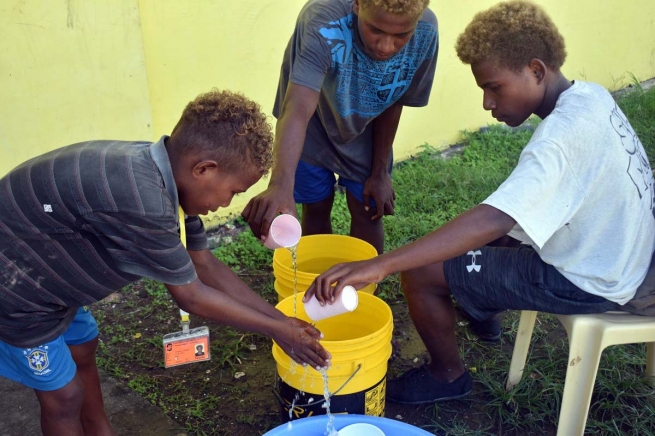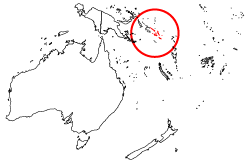SOLOMON ISLANDS: Literacy center serves children who live at dump site, too poor to attend school

(MissionNewswire) Don Bosco Technical Institute Henderson, located in Honiara, the capital city of the Solomon Islands, launched a new project in 2019 to provide education to children living near the Ranadi dump site in a suburb east of Honiara. The families who live there experience high rates of poverty, unemployment and illiteracy. Most spend their days at the dump collecting materials that can be recycled.
Children often work with their parents, which prevents them from regularly attending school and receiving an adequate education. Due to the unsanitary conditions of the dump, the hygiene of these children and their families is precarious and negatively impacts their health.
Don Bosco Technical Institute Henderson launched a literacy center that serves children who are too poor to attend even a government school. Since March 2019, Salesian missionaries have been teaching children, between the ages of 4 and 13, to read, write and refine their calculation skills. There is also a Salesian course to raise awareness among parents so that they understand the importance of giving their children a proper education and are motivated to send them to school instead of working in landfills.
The process of enrolling children into the literacy center is thorough to ensure that children will make the most of the opportunity. A Salesian representative said, “We do a survey of the locality to identify the children who do not attend any school at all. We contact the parents and leaders of the landfill site. We collect information about the children, names, age and gender, as well as the occupation of their parents.”
Salesians bring the children to the school by truck in the morning and drop them back in the afternoon. They also provide intensive coaching in mathematics and English language. The program does not use textbooks, but instead lesson plans are customized to meet the children’s needs in the program at any given time. The system is based on “joyful learning” and uses games, songs and a variety of activities.
Children are separated into groups according to their progress and speed of learning. Periodic evaluations are done, and children may move to a higher level or to a lower one according to their performance and needs.
The Salesian representative added, “The program runs for one calendar year. At the end of the year, after completion of the course, promotion results and certificates are awarded according to each child’s performance. We are also studying the possibilities of enrolling them in regular schools in the following year.”
About 12.7 percent of the population of the Solomon Islands lives below the poverty line. Roughly 20 to 25 percent of youth in the country never attend primary school with 30 percent of those attending never completing. Limited access to education and an adult literacy rate of less than 35 percent perpetuate the cycle of poverty from generation to generation.
Eighty-four percent of Solomon Islanders reside in rural areas and rely on subsistence farming for their livelihoods. Access to health care and other social services is very limited, and the poor to non-existent access to reliable transport, electricity and telecommunications infrastructure compounds already challenging economic conditions. With the majority of youth living in remote areas with limited educational and employment prospects, overcoming poverty is an uphill battle.
###
Sources:
ANS Photo (usage permissions and guidelines must be requested from ANS)
ANS – Solomon Island – Social Service Wing Of Don Bosco, at Henderson, Honiara
Don Bosco Technical Institute Henderson Facebook
UNICEF – Solomon Islands
Salesian Missions – Solomon Islands





